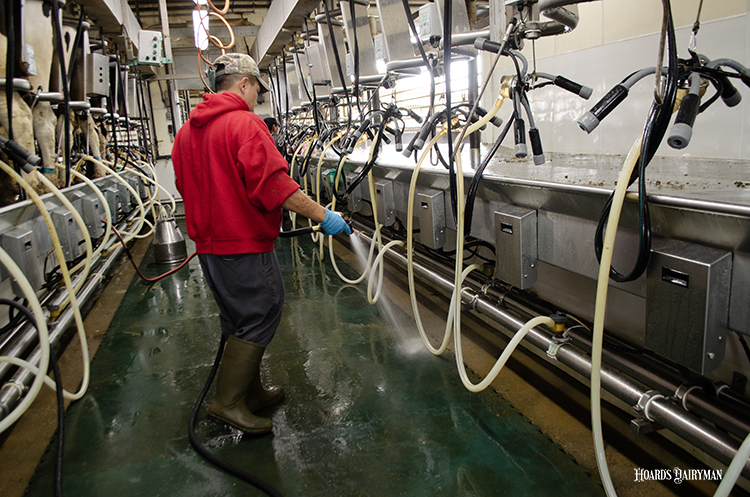
The 2023 National Conference on Interstate Milk Shipments (NCIMS) was held in Indianapolis from April 3 to 7. The gathering once again highlighted the successful collaboration between the U.S. Public Health Service (USPHS)/Food and Drug Administration (FDA), state regulators, and dairy industry representatives in an ongoing effort to promote and protect a safe supply of Grade A milk and milk products.
Since it began in 1950, the conference serves as a model program of stakeholder cooperation. It brings together all affected parties to develop and maintain an effective and efficient system of regulating the interstate shipment of milk and milk products to ensure the safest milk supply possible.
The conference is held biannually to update the Grade A Pasteurized Milk Ordinance (PMO). The PMO, of course, regulates the interstate shipment of milk and milk products, outlining the standards for Grade A raw milk for pasteurization, ultra-pasteurization, aseptic processing and packaging, retort processed after packaging or fermented high-acid, shelf-stable processing, and packaging. The PMO affects every dairy farmer in the United States.
Prior to the NCIMS conference, proposals are submitted to update the PMO. Those proposals are then discussed and voted on at the conference by committees, councils, and finally state delegates. From there, FDA has the choice to concur or nonconcur. The 2023 conference featured more than 400 attendees — the most in its history — after taking a four-year hiatus due to the COVID-19 pandemic. FDA, state regulators, and industry representatives submitted 72 proposals for the conference. Those proposals touched on everything from water testing to the addition of kefir to determining how to handle yogurt parfaits. Below is an overview of three proposals NMPF believes are significant for dairy farmers:
Proposal 207, submitted by the National Milk Producers Federation, would require a 48-hour notice prior to on-farm inspection. Reasons for this include the risks to human health following the COVID-19 pandemic, the farm’s biosecurity, and overall personnel safety. The proposal was amended at the conference and passed through the delegates to be assigned to a standing or ad-hoc committee to review specific sections of the PMO that reference on-farm biosecurity. Summary thoughts: This is an important first step in recognizing the importance of biosecurity measures on dairy farms and will hopefully lead to further discussion of inspection notices.
Proposal 218, submitted by the Methods for Making Sanitation Ratings committee, backed eliminating the evaluation of a milking time inspection program from the calculation of enforcement ratings for dairy farms. This proposal did not make any changes or expectations of milk time inspections in Sections 5 or 6 of the PMO. The justification for the removal of the milking time inspection program was that it wasn’t being done, giving dairy farms an automatic credit of 5 points. The proposal passed as amended through the delegates to evenly redistribute the weight of those 5 points among the remaining items evaluated when calculating the enforcement rating score for dairy farms. Summary thoughts: NMPF is concerned about the unintended consequences of the reallocation.
Proposal 301, submitted by the National Milk Producers Federation, provided a definition of equivalence for the USPHS/FDA responsibility to determine whether a foreign country’s regulatory program and government oversight of that program has an equivalent effect on the safety of the regulated milk or milk product. The term “equivalence” is important for international trade; unfortunately, the PMO has long lacked a definition. This proposal passed through the delegates as amended to include a definition more like that of the World Trade Organization. Defining equivalence provides clarity for foreign countries wishing to participate in the PMO. Summary thoughts: This proposal sends an important message to FDA on the importance of transparency when analyzing equivalence for foreign countries.
Future plans
For the 40 proposals that the state delegates passed, FDA will choose to concur or not concur. From there, a new edition of the PMO will be made available. The every-other-year conference will be held in Minneapolis in 2025.








